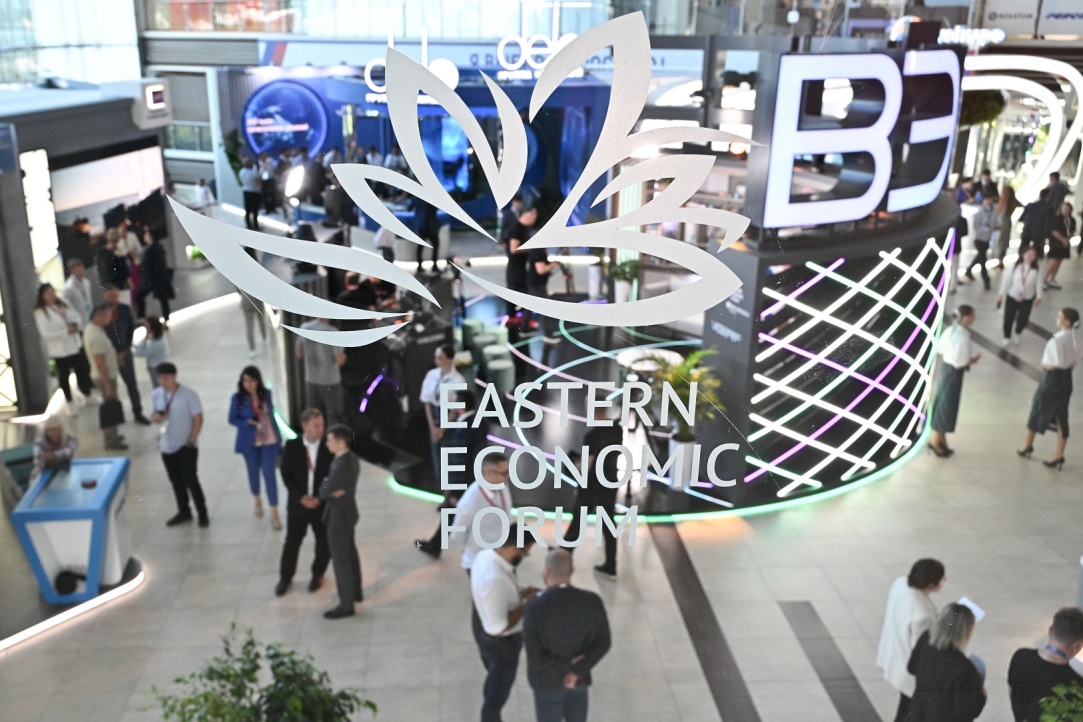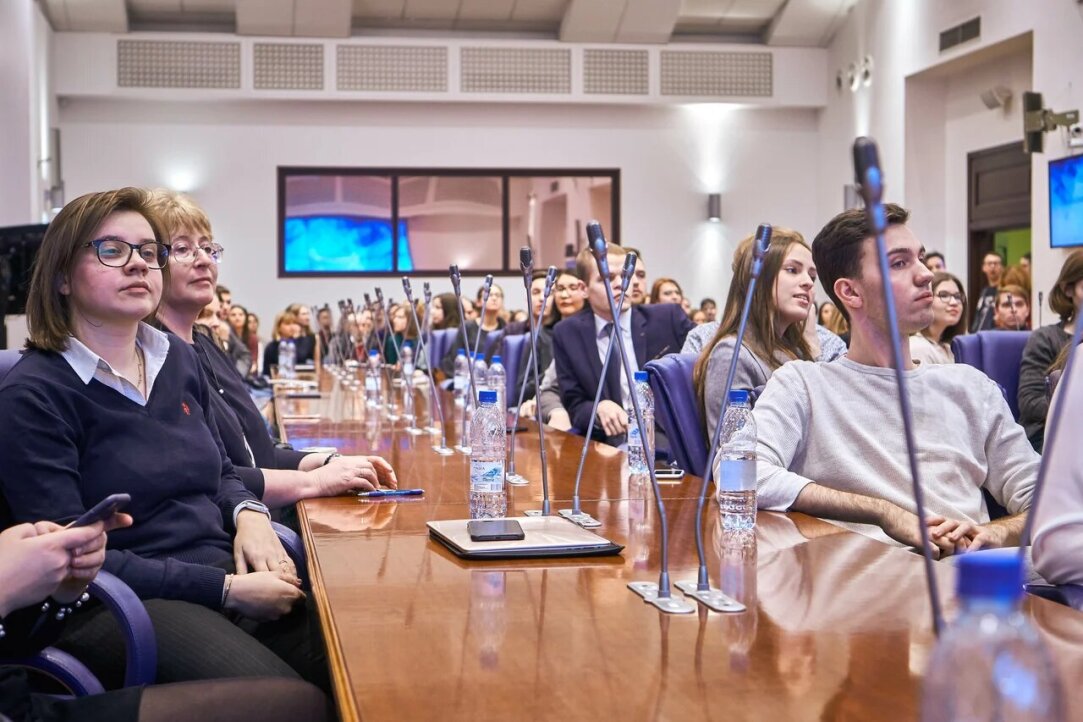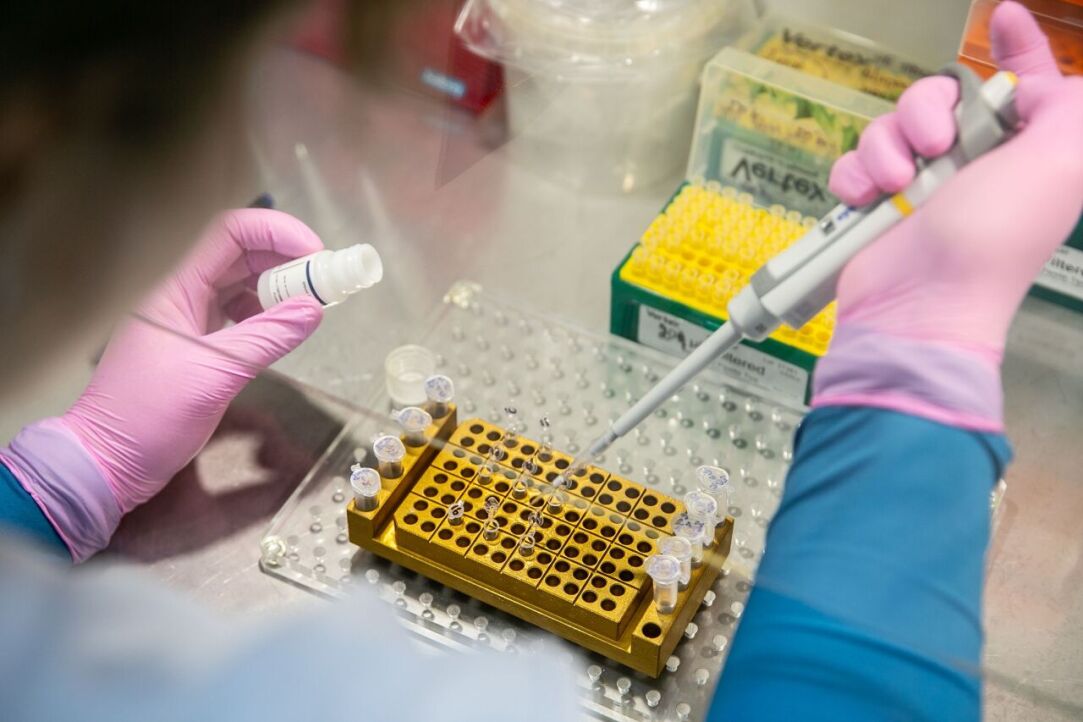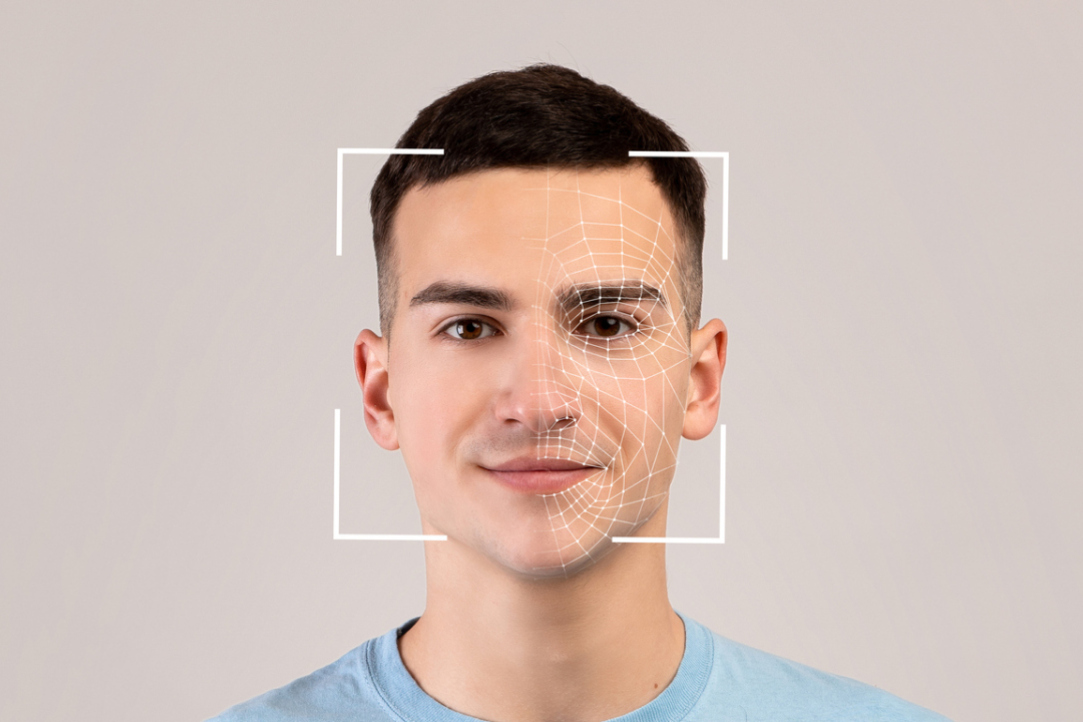.jpg)
HSE University at EEF: 'We Are a University Integrated in Its City'
Addressing the Eastern Economic Forum, HSE University's experts discussed the role of universities in the integrated development of territories, Russia-China cooperation on carbon neutrality, and the role of businesses and non-profit organisations in society's pursuit of a better future.

‘What Makes BRICS Effective Is Its Diversity’: HSE University Representatives Begin Work at EEF
HSE University Vice Rector Victoria Panova spoke at the Eastern Economic Forum (EEF 2024) that began in Vladivostok. The topic of her speech was the expansion of BRICS.

Call for Papers for the SRPC 2024 Student Research Paper Competition is Now Open
The start of the academic year is not just about new subjects and long-awaited reunions with classmates, but also about choosing a topic for your term paper. Writing it is often quite challenging, and the results of your hard work can sometimes feel irrelevant or unapplicable. SRPC offers a great opportunity to receive expert feedback on one’s research, gain recognition within the academic community, and take the first steps toward an academic career.

Narcissistic and Workaholic Leaders Guide Young Firms to Success
Scientists at HSE University—St. Petersburg studied how the founder's personal characteristics impact a young firm's performance. It turns out that a narcissist and workaholic who also fosters innovation will effectively grow their company. The paper has been published in IEEE Transactions on Engineering Management.

Biologists at HSE University Warn of Potential Errors in MicroRNA Overexpression Method
Researchers at HSE University and the RAS Institute of Bioorganic Chemistry have discovered that a common method of studying genes, which relies on the overexpression of microRNAs, can produce inaccurate results. This method is widely used in the study of various pathologies, in particular cancers. Errors in experiments can lead to incorrect conclusions, affecting the diagnosis and treatment of the disease. The study findings have been published in BBA.

Green Energy Patents Boost Company Profitability
An ESG strategy—Environmental, Social, and Corporate Governance—not only helps preserve the environment but can also generate tangible income. Thus, the use of renewable energy sources (RES) and green technologies in the energy sector enhances return on investment and profitability. In contrast, higher CO2 emissions result in lower financial performance. This has been demonstrated in a collaborative study by the HSE Faculty of Economic Sciences and the European University at St. Petersburg. Their findings have been published in Frontiers in Environmental Science.

HSE Scientist Optimises Solution of Hydrodynamics Problems
Roman Gaydukov, Associate Professor at the MIEM HSE School of Applied Mathematics, has modelled the fluid flow around a rotating disk with small surface irregularities. His solution allows for predicting fluid flow behaviour without the need for powerful supercomputers. The results have been published in Russian Journal of Mathematical Physics.

'Engaging in Research Is Partly an Art and Partly a Craft'
Vyacheslav Kramkov's research focus is macrofinance, a field at the intersection of macroeconomics and financial markets. In this interview with the HSE Young Scientists project, he explains how economists develop their models, discusses the social dimension of science, and contends that the relationship between the dollar-rouble exchange rate and oil prices is no longer as tight as it once was.

Neuroscientists from HSE University Learn to Predict Human Behaviour by Their Facial Expressions
Researchers at the Institute for Cognitive Neuroscience at HSE University are using automatic emotion recognition technologies to study charitable behaviour. In an experiment, scientists presented 45 participants with photographs of dogs in need and invited them to make donations to support these animals. Emotional reactions to the images were determined through facial activity using the FaceReader program. It turned out that the stronger the participants felt sadness and anger, the more money they were willing to donate to charity funds, regardless of their personal financial well-being. The study was published in the journal Heliyon.

Physicists from Russia and Brazil Unveil Mystery behind Complex Superconductor Patterns
Scientists at HSE MIEM and MIPT have demonstrated that highly complex spatial structures, similar to the intricate patterns found in nature, can emerge in superconductors. Mathematically, these patterns are described using the Ginzburg–Landau equation at a specific combination of parameters known as the Bogomolny point. The paper has been published in the Journal of Physics: Condensed Matter.


Deadline for applications to present academic reports - January 20, 2025